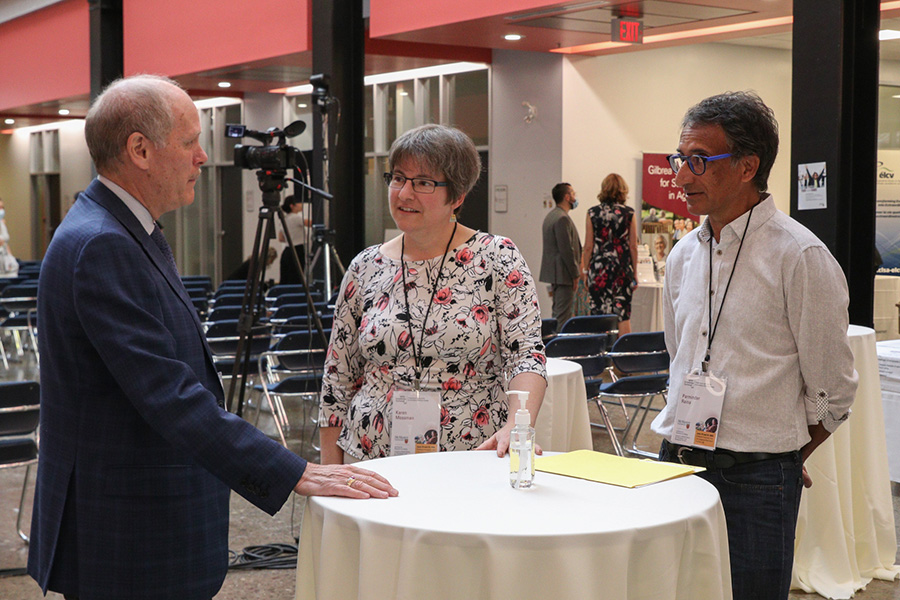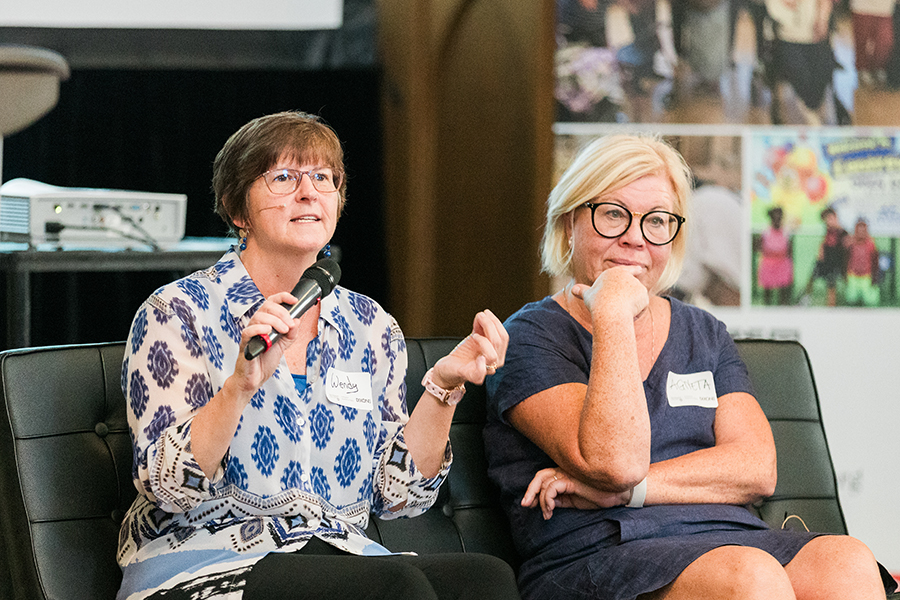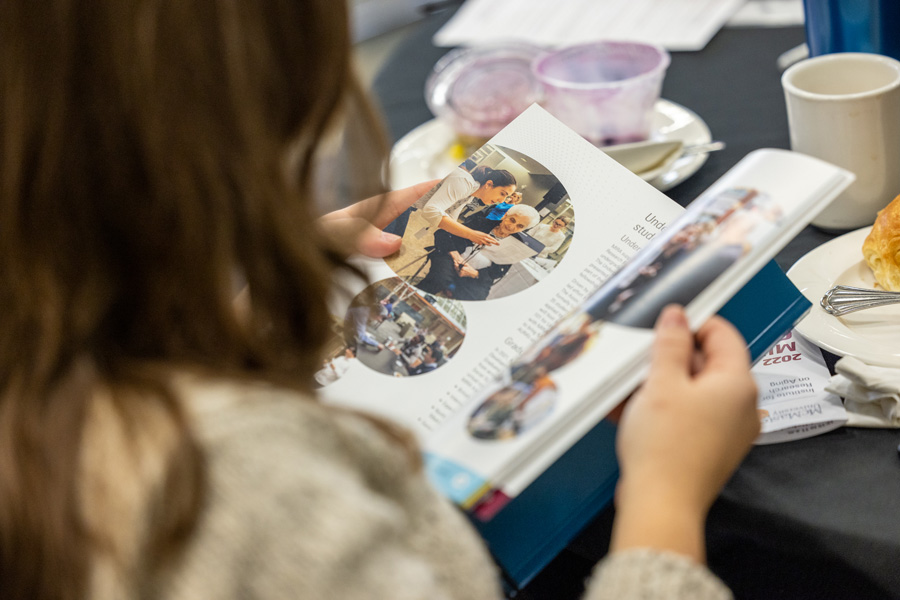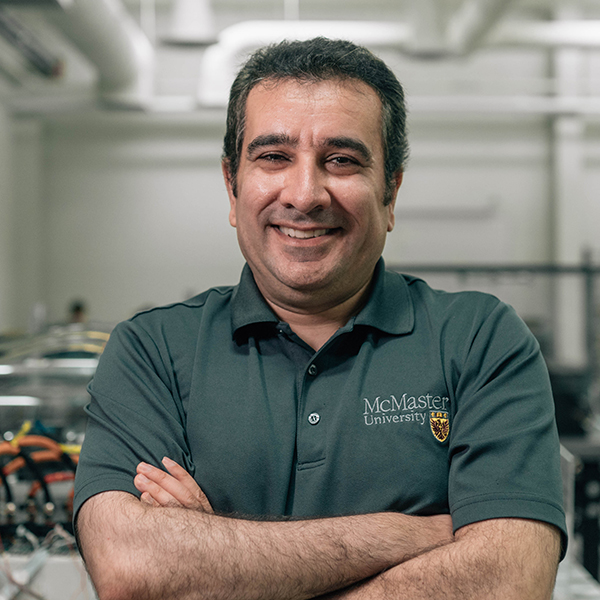Governance
Our focus on deep engagement and involving many perspectives to address complex problems is reflected in the structures that guide and advise our institute.

Overview
MIRA’s governance and management structure ensures scientific excellence and has successfully supported the Institute since MIRA launched in 2016. MIRA has management and oversight from both the Labarge Gift Board and the University’s senior leadership; our scientific director, Parminder Raina, reports to the MIRA Governing Board and the Labarge Gift Board. Our scientific director is advised by an Executive Committee, with representation from all six McMaster Faculties. An International Scientific Advisory Committee (ISAC) of accomplished aging researchers from around the world gives a critical perspective to MIRA and our major programs of research and strategic initiatives.
A Stakeholder Committee and Community Partner Network provide insight into our work — helping the institute focus on work that will most benefit the health and well-being of older adults. Working groups support special functions of MIRA, such as training or communications.
The MIRA | Dixon Hall Centre is supported by an associate scientific director, Marla Beauchamp, and an executive group with leadership from both MIRA and Dixon Hall — bridging the gap between academia and the community.
We are advised and guided by the input of community partners and research experts from both McMaster and around the world.
MIRA Executive Committee
The Executive Committee meets at least four times a year to provide insight and advice regarding operational and strategic research and knowledge translation priorities of the Institute and its research Centres. The committee offers valuable guidance on the performance of the MIRA.
Our Executive Committee

Helping bring MIRA’s impact global and providing international perspective to our work.
Annual Reports
Learn more about the yearly successes of the McMaster Insistute for Research on Aging and Labarge-supported initiatives.
About MIRA
The McMaster Institute for Research on Aging (MIRA) works to optimize the health and longevity of older adults through research, education and community engagement.
about us









